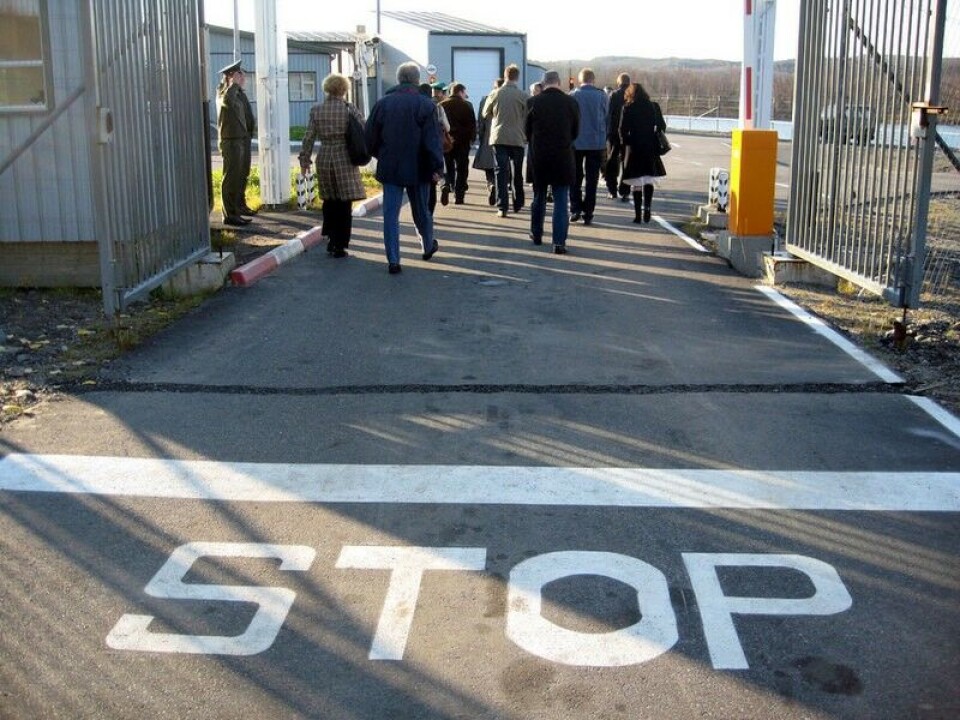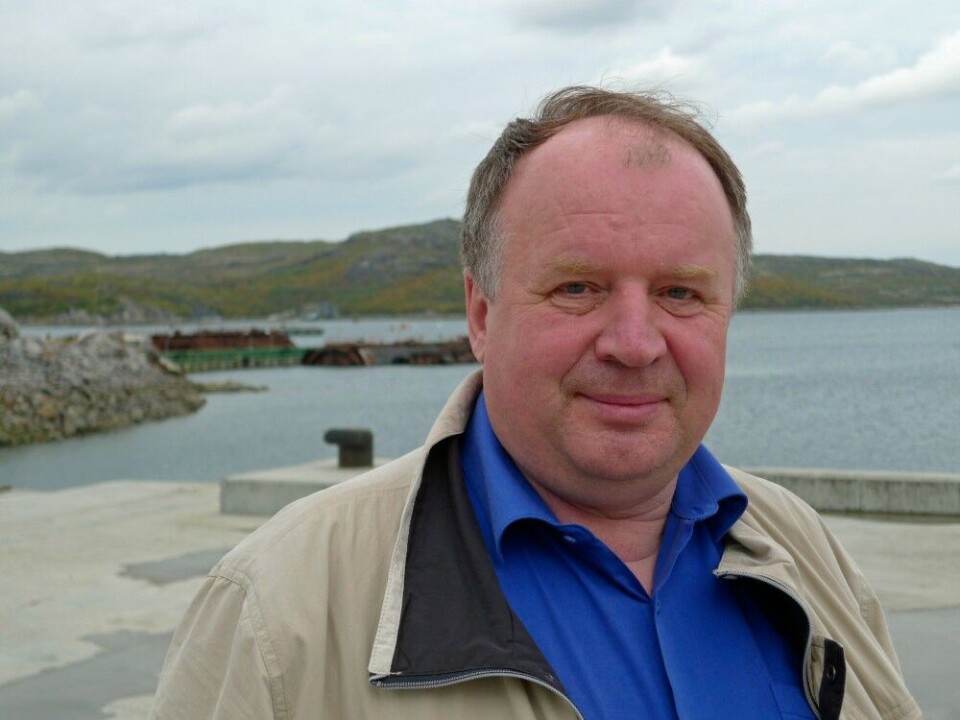
Two leading Norwegian officials on nuclear safety halted on their way out of Russia
We see this as a serious incident, says the Norwegian Ministry of Foreign Affairs.
p.p1 {margin: 0.0px 0.0px 20.0px 0.0px; line-height: 28.0px; font: 16.0px ‘PT Sans’; color: #272727; -webkit-text-stroke: #272727; background-color: #ffffff}p.p2 {margin: 0.0px 0.0px 20.0px 0.0px; line-height: 28.0px; font: 16.0px ‘PT Sans’; color: #272727; -webkit-text-stroke: #272727; background-color: #ffffff; min-height: 20.0px}p.p3 {margin: 0.0px 0.0px 0.0px 0.0px; line-height: 18.0px; font: 14.7px Calibri; color: #1f497d; -webkit-text-stroke: #1f497d; background-color: #ffffff; min-height: 18.0px}p.p4 {margin: 0.0px 0.0px 0.0px 0.0px; line-height: 20.0px; font: 17.0px Georgia; color: #292929; -webkit-text-stroke: #292929; background-color: #ffffff}span.s1 {font-kerning: none}
The two officials, both of them representatives of the County Governor of Finnmark, were held back by FSB border guards as they last week were on their way back to Norway.
«They are involved in the County Governor’s activities on nuclear safety, which constitutes an important part of our nuclear safety cooperation with Russia,» says ministry press spokeswoman Ane Haavardsdatter Lunde.
«Both of them have very long experience in the Norwegian-Russian cooperation across the border,» she underlines in an email to the Barents Observer.
Little is known about the details and acting Finnmark County Governor Ingvild Aleksandersen declines to comment.
«But we now have all our people home in Finnmark,» Aleksandersen makes clear.
The Ministry of Foreign Affairs says that it looks at the incident with seriosity.
«It is worrying if this would affect the further progress in the nuclear safety cooperation, which otherwise has been a success story in the Norwegian-Russian relationship in the north,» says ministry spokeswoman Haavardsdatter Lunde.
«We have requested Russian authorities to elaborate on the background for the case.»
It is not clear whether the two Norwegians from now on will be denied entry to Russia.
Important meeting in Murmansk
The incident on the border took place as the Norwegian State Secretary of Foreign Affairs Audun Halvorsen made his last-minute preparations for this year’s meeting in the joint Norwegian-Russian Commission on Nuclear Safety.
«The nuclear safety cooperation between Norway and Russia is a central dimension in the bilateral relationship and contributes to security and trust-building on both sides of the border,» the deputy minister says in a statement issued on Monday.
«The neighbourhood cooperation with Russia is important for Norway,» he underlines.
Halvorsen on Monday met with Murmansk Governor Marina Kovtun and on Tuesday attended the joint bilateral commission meeting. Among the key issues discussed in that meeting was the floating nuclear power plant «Akademik Lomonosov», which now is docked in the Atomflot base in Murmansk, as well as the Kola Nuclear Power Plant and the situation in Andreeva Bay, the major nuclear waste facility located on the Barents Sea coast only about 55 km from the border to Norway.
The Andreeva Bay
The deputy minister and other key officials in the Norwegian-Russian nuclear safety commission on Wednesday make a visit to Andreeva Bay, the site which holds large volumes of spent nuclear fuel. Norway has over the years invested heavily in the upgrades of the facility and out-shipment and transportation of the deadly materials to reprocessing plant Mayak.
The incident on the border could potentially be blow to the important bilateral cooperation.
The role of the Finnmark Governor
The names of the two people involved in the border incident remain unclear. However, the most experienced person engaged in nuclear safety in the Finnmark County Governor’s office is Per-Einar Fiskebeck. Over a big number of years, Fiskebeck has shuttled to and from the Andeeva Bay and been a key contact person between the sides. He has also played a crucial role in the project on removal of 180 radioactive lighthouses along the Russian northern coast with solar-powered installations.
The Barents Observer has not managed to get a comment from Per-Einar Fiskebeck.

In 1995, Norway launched a Plan of Action on nuclear safety in northwest Russia, and three years later a separate Joint Norwegian Russian Commission on Nuclear Safety was established. Norway has since then granted more than 1,5 billion Norwegian kroner (€162 million) into nuclear safety projects in Russia, mainly on the Kola Peninsula.
















